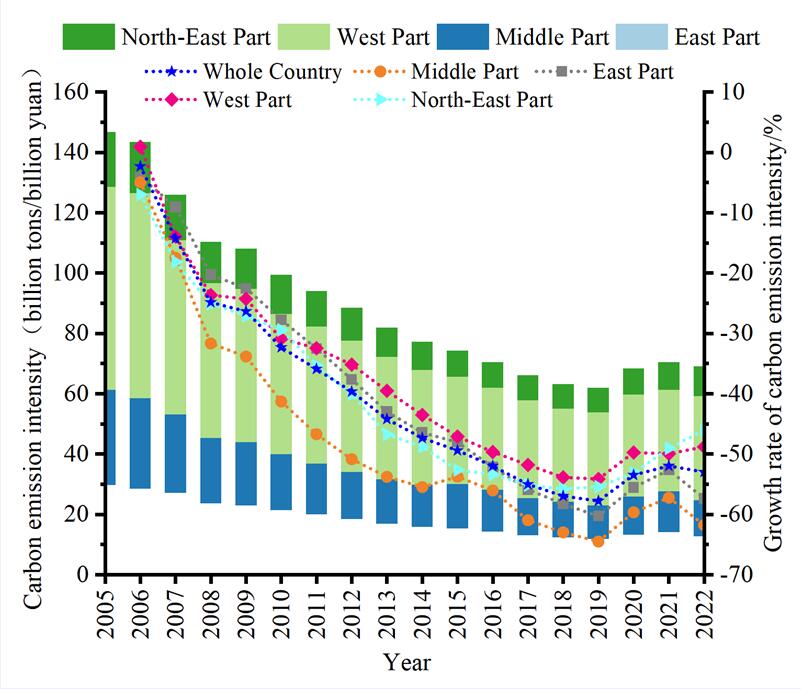
Reducing carbon emissions is one of the important ways to achieve the goal of "dual carbon". Taking carbon emission intensity as the research object, this paper analyzes the spatial effects of carbon emission intensity at provincial level in China during 2005-2022 by kaya extended model, standard deviation ellipse, Theil index and kernel density analysis model. The results show that: (1) Overall, the distribution of carbon emission intensity in China exhibits distinct regional characteristics, with significant heterogeneity in emissions among regions. (2) With advancements in technology and economy, China's carbon emission intensity has shown a downward trend, albeit with a U-shaped fluctuation. (3) During the sample period, the contribution of Theil index to carbon emission intensity decreased first and then increased. (4) From a geographical perspective, carbon emissions exhibit a pattern characterized by "high in the east, low in the west, dense in the north and sparse in the south". Therefore, establishing a sound regional carbon reduction cooperation mechanism and promoting green development tailored to local conditions have become the main direction for advancement.
Total file downloads: 20